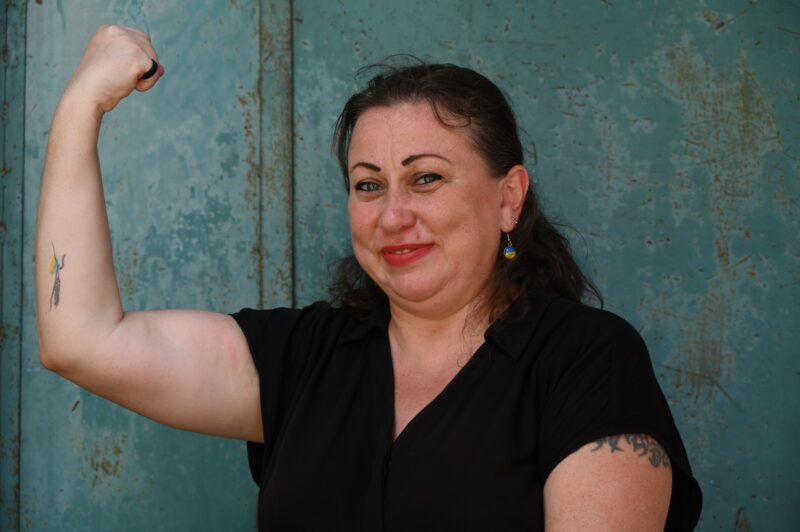
Anna Polisuchenko
Ukraine, Kyiv
Israel, Haifa
“On the first night of the war, I heard a huge explosion and saw a flash of light across the street. A Russian missile had hit the house in front of me, and it was terrifying. The war had come to my doorstep. I moved to a shelter that offered protection from the missiles, but it couldn’t shield me from the cold. After five days of enduring the freezing temperatures, and with the temperature dropping to -6°C and snow beginning to fall, I realized I couldn’t bear it any longer. Within half an hour, I packed a small bag with mostly clothes and my passport and decided to leave Kyiv. Unfortunately, I had to leave my mother behind because she refused to evacuate. She was determined not to leave her homeland and insisted that no occupier would drive her away. She still lives in Kyiv, amid the missiles and alarms.
Since my daughter lives in Israel, it was very clear to me that I would also come here. My daughter immigrated to Israel about three years ago and today she serves as a fighter in the Israeli Border Guard. She speaks fluent Hebrew and is Israeli in every way. I am very proud of her. Unlike her, I never imagined making ‘Aliyah’ to Israel. Before the war, I had a fulfilling life in Kyiv: I had my own apartment, worked in journalism, and lectured at a university. I never thought I would leave the city, but sometimes life has its own plans.
In Kyiv, I boarded a train to Lviv that was so overcrowded it was nearly unbearable. The journey took about eleven hours, standing the entire time, without food or access to a bathroom. When I finally arrived in Lviv, I stayed there for about a week to recover from the exhausting trip. From there, I went to the Jewish Agency in Warsaw, where I received my visa to Israel relatively quickly. Although I could have flown to Tel Aviv immediately, I chose to stay in Warsaw and volunteer at the Agency’s aid center. The need for assistance among the refugees was so great that I felt I had to stay and help in any way I could.
In Israel, I chose to live in Haifa, a large city with affordable housing and, equally important, close to the sea. I’ve completed two courses of Hebrew at the ‘ulpan,’ so I have a good grasp of the grammar, but I still need to practice speaking. I started a small business focused on marketing through social networks, specializing in branding, copywriting, and video production. Unfortunately, there aren’t many journalism opportunities in Haifa, particularly in Russian, but I’m grateful that I can still make a living using my journalistic skills.
A year ago, I decided to get a tattoo that would serve as a reminder of my beloved homeland and symbolize hope and optimism. I chose a design of an ear of grain, inspired by Ukraine being the ‘granary’ of Europe. The ear of grain, from which bread is made, represents life and continuity, and combined with the Ukrainian flag, it felt like the perfect tattoo for me.
Unfortunately, last year a war also broke out in Israel. Despite this, I have no intention of evacuating. I am staying here, and from this place, I will continue to support both Ukraine and Israel.
